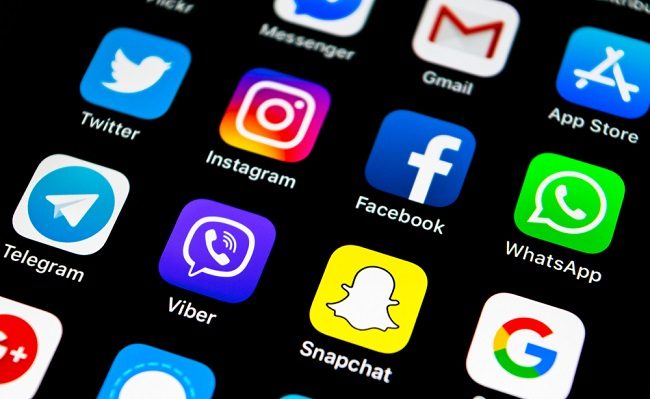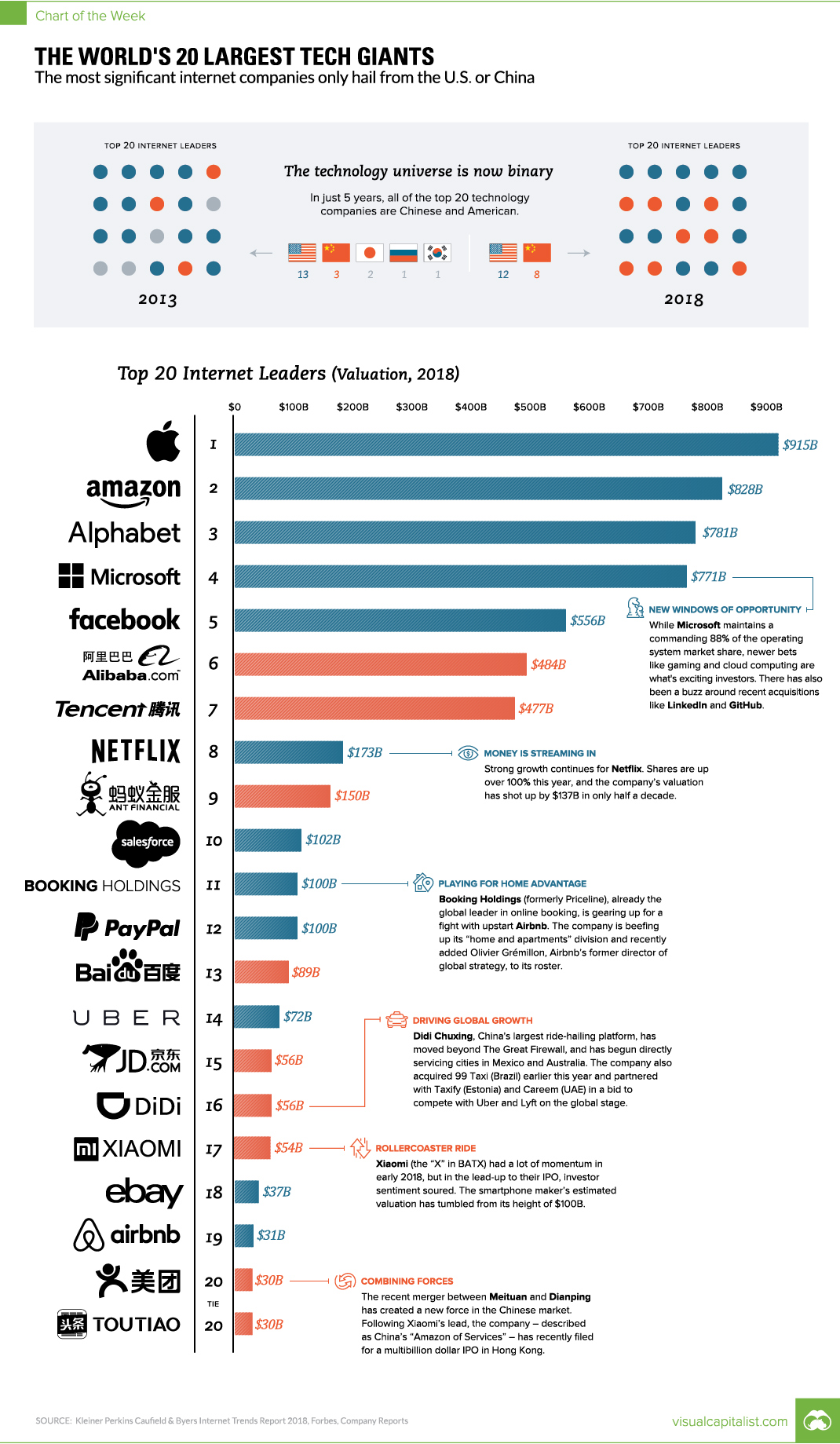Motivation
For the last few months, the constantly shifting nature of events around the world has truly been staggering. To name just a few:
- There have been protests in Hong Kong
- Australia caught fire
- WW3 nearly started in the Persian Gulf
- Iran shot down a passenger jet, killing all 176 people on board
- A huge volcano erupted
- The president of the USA was impeached
- COVID-19 was declared a public health emergency by the World Health Organisation
- The Brexit transition started
And that was just January.
Since then, one of the biggest topics of 2020 that has occupied the publics attention has been the Black Lives Matter movement and the related events happening in the US and around the world.
As an interesting side story to these world-changing events, I started to notice how tech companies were responding to being in the spotlight. Some, like Twitter, were relatively quick to take measures, implementing fact checking and banners to combat fake news and removing outspokenly racist people. Others, like Facebook, are suffering a fairly major blowback from both their users and advertisers for being perceived to be protecting hate speech.
This got me thinking about my impact on companies and platforms like these. Whether there is money involved or not in your transactions with a company, you are contributing both monetary value and validation to them and their actions.
I started to look critically at the apps I was using on a daily basis.
- What was I using them for?
- Did I pay?
- Where is the value for me?
- Where is the value for the company?
The last question was the one I focused on the most. Putting everything else aside, what was the company that provided the app or service getting out of it? And what were they doing with it?
The Price Of Free
Few things in life are truly free. And as the saying goes…
If you are not paying for it, you’re not the customer; you’re the product being sold - blue_beetle, 2010
And these days, sometimes even if you are paying you’re still the product. Maybe it’s time we revised that one.
If you are not paying for it, you’re not the customer; you’re the product being sold. Except when you’re paying, and you’re still the product being sold. #doubledipping - Me, 2020
A lot of the apps I found myself using were these free services provided by the biggest companies in the world. I was using Google’s Chrome browser to check my Google Mail to check my YouTube subscription emails and then Googling how to reset my Google Nest.
At least I don’t have an Android phone… any more.
With the exception of the Nest (which I did pay for - great little gadget), I hadn’t paid for any of this. So what were Google getting out of it?
Data, or more specifically, the ability to leverage it to make money from your personal data that you hadly freely given up when you registered, in many cases not understanding (because seriously, who reads T&C docs these days) exactly what you’d signed up for.
Thankfully, in Google’s case, it’s pretty obvious. The bulk of Google’s 162 billion dollar revenue in 2019 came from its proprietary advertising service, Google Ads.
When you use Google to search for anything from financial information to local weather, you’re given a list of search results generated by Google’s algorithm. The algorithm attempts to provide the most relevant results for your query, and, along with these results, you may find related suggested pages from a Google Ads advertiser.
- Google’s AdSense program allows websites not affiliated with Google to use Google display advertising on their sites.
- A large portion of Google’s revenue comes from advertising.
But Google is easy, what about others? Let’s take a look at where exactly big companies get their money from, and what they do with it.
The Big Players
The following is a list that mixes both company names and service names (e.g. Google and YouTube). I will not list everything that these companies or apps do to make money (or we’ll be here all day) - just the ones relevant to the topic at hand.
Everything in the below list is presented neutrally. Everything is cross-referenced and you can find the necessary information on respective wiki pages or by using your preferred search engine.
Behaviours presented below such as censorship or privacy concerns are intended to illustrate the nature and ideals behind the scenes, and to hopefully get you thinking about whether your ideals are aligned.
- Gets a large share of their money from advertising that leverages their extensive data on you (yes, you specifically Richard)
- Also provides Google Services (email, application hosting, online document editors) at a premium for business users
- Maintains the Android Mobile Operating System used on billions of devices
- Manufactures and sells IoT hardware such as Nest and Google Home
What they do
- Share your data across their various different apps and services, including for advertisers to tailor display ads on other websites
- Involved in various antitrust suits related to their control of the Android operating system
- Has been accused of manipulating search engine rankings to further their business agenda
- Has been accused of tolerating DMCA takedown abuse on YouTube that allows large copyright and patent troll companies to erroneously take down and claim ad revenue or existing videos
- Makes almost all of its revenue from ad sales, leveraging it’s almost unparalleled access to user data
What they do
- Heavily invests in new technologies such as AI, cryptocurrency, and augmented reality to diversify
- Currently facing stiff resistance from global banks as it attempts to legitimise the Libra cryptocurrency (honestly, I find the concept of a Facebook Coin super scary)
- Is being investigated by four different U.S. regulators for antitrust violations
- Implicated in the Facebook-Cambridge Analyitca political advertising data leak, using the data to assist both the Ted Cruz and Donald Trump presidential campaigns in 2016
- Recently has been receiving fierce criticism for their perceived failure to act on recent posts by Donald Trump, who was been accused of making inflammatory comments about police brutality and racism, triggering a wave of employee resignations and advertisers cancelling campaigns
Apple
- Sells iOS and MacOS hardware devices such as iPhones and Macbooks, constituting 70% of their profits
- Has a range of wearables and IoT devices
- Generally charges a premium on top of other comparable devices
What they do
- Creates a ‘walled garden’ effect for their applications and hardware, effectively locking out non-Apple devices from accessing a lot of Apple apps and services
- Has received criticism for their vendor lock-in practices
- Has repeatedly been accused of anti-competitive behaviours relating to other services, e.g. Google Voice, Adobe Flash and Spotify
- Has been accused of enabling poor labor practices at supplier sites in Hong Kong, e.g. the Foxconn suicides
- Was handed an £11 billion European tax fine by the European Commission for taking unfair advantage of Irish tax breaks
- Has had numerous public problems (real and perceived) with their mobile hardware, notably bend gate and keyboard gate
Microsoft
- Generates most of its oncome from a software licensing model for operating systems, cloud services, and software products used by business tiny and massive
- Provides the popular Office sweet as a consumer service, including Outlook, OneDrive and Skype
- Manufactures and sells hardware such as the Surface range and the Xbox range
- Develops and publishes videogame software
What they do
- Has been accused of war profiteering in the form of a $480 million contract to develop AR headsets for the US Army
- Has received criticism for their vendor lock-in practices
- Has been sued pretty consistently for the last 3 decades by various people and groups disagreeing with their business strategies
- Was the first company to participate in the PRISM surveillance program (the Edward Snowden leaks)
Amazon
- Makes its primary income source via retail and web services
- Provides web services and infrastructure to some of the biggest web apps in the world, e.g. Netflix and Facebook
What they do
- Has leveraged its considerable resources to enter various markets, including IoT, Mesh Wifi, Tablets, TV dongles, and AI
- Has been accused of anti-competitive practices, including price controlling and removing competitors products from their marketplaces
- Has been consistently under fire for the last few years over its tretment of workers, poor working conditions, and opposition to trade unions
- Has been consistently under fire for tax avoidance and leveraging advantages to effectively eliminate small business competition
- Recently Jeff Bezos has been under fire for growing his stake in Amazon by 20% ($24bn) since the coronavirus outbreak, while simultaneously being accused of failing to protect the warehouse workforce from the virus
- Has contracts to license customer Ring doorbell footage to law enforcement and licensing face-recognition software for use in surveillance
- Generates revenue via advertising and an ad-free premium subscription
What they do
- Reddit has a long history of controversies, dating back to at least 2010
- Has been criticised for leveraging its users ‘dark secrets’ in its advertising policies
- Multiple administrators have been accused of making database level edits (essentially untraceable)
- Has been accused of tolerating extreme right views, racism, sexism, transphobia, and calls to violence in exchange for the viewcount and ad revenue it provides (e.g. The Donald Trump subreddit, which has only recently been banned
- In Feburary 2019, Chinese company Tencent invested $150 million in Reddit sparking concerns from users worried about government censorship in a now partially Chinese owned business
Tesla
- Manufacture and sell luxury electric cars
- Privatised space program carrying out contracts in the aerospace industry
What they do
- Various ventures, including flamethrowers, boring machines, star link satellites
- Support this guy financially

- Elon Musk has been the subject of multiple controversies, including investigations by the DOJ and SEC for stock manipulation, accusing a well respected cave diver of being a pedophile, keeping California based factories open during coronavirus lockdown against official instructions, failing to provide adequate PPE for workers, and most recently supporting Kanye West in his presedential campaign announcement
On a personal note here, I do have to point out that while I think Elon Musk is a clever guy, I also truly believe he is completely insane. Sorry Elon.
Samsung
- Roughly half of revenue comes from mobile devices and networking
- Also manufactures and sells white goods, IoT devices, laptops, SSDs, and a myriad of other goods and services
What they do
- Implicated in numerous financial scandals and antitrust concerns
- Accused of and fined $150 million for fixing the price of DRAM
- Accused repeatedly of industrial espionage and patent infringement
- Has been implicated in a scandal that involved the South Korean president accepting bribes from Samsung in exchange for preferential treatment
Trust No One (Not Even Yourself)
Okay, so at this point you’re probably thinking… what is the point?
The landscape of who is where and doing what in 2020 is extremely difficult to untangle, to know who you are dealing with, where the money (or your data, or both) is going, and what you should do about is getting increasingly hard.
So my point is: there are things you can do as an individual to at least get a handle on things.
- Trust no one (not even yourself)
- If something is too good to be true, it probably is
- It’s absolutely worth being informed about the choices you are making, even if the choice doesnt have an upfront cost
And if you do decide to trust someone, remember the old Russian rhyming proverb.
Doverey, no proverey
Trust but verify.
Alternatives
If you are interested in finding out more about apps and services that are growing in popularity as privacy consciousness increases, I’ve left a few links below to stuff I’ve either used or comes highly recommended.
My Journey So Far
To come full circle back to the start of this post; what have I been doing about it?
- I’ve deleted my Facebook account (along with Messenger)
- I’ve deleted WhatsApp and replaced it with Signal and Telegram (though there are some concerns about Telegram’s encryption not being end-to-end)
- I’ve begun migrating my emails from Gmail to Apple mail
- I’ve ditched Google Chrome for Edge and Firefox
Next Steps and Gotchas
I’ve only just started my self-audit of app and company choices, but already there are some caveats and oncoming blockers
- I still have Instagram as I do enjoy using it, however I will eventually get rid of this too
- I am keeping Twitter for the time being
- I would love to step away from Facebook (the company) entirely, however they are the parent company for Oculus and I love my Oculus Quest too much…
- Google Search is so good I’m struggling to find a footing with DuckDuckGo
- I don’t even know where to start with Amazon, and that’s before we get to my reliance on Amazon Web Services (AWS)
Some of these are easy (I should just man up and delete my Instagram already but where else am I going to post pictures of my dog?), and some are hard.
The hardest of these will be the ubiquitousness of Amazon. I use Prime Now for my shopping, I order everything else on Amazon for next day convenience, I watch Prime Video a lot as they have some very fine originals, and my entire financial situation is inexorably tied to delivering platforms and apps through AWS.
The journey continues.
Mistakes? Inaccuracies? Typos?
Please let me know if you find anything factually incorrect in this blog post by submitting an issue.
Alternatively, amend the document directly and create a pull request with the necessary changes.



